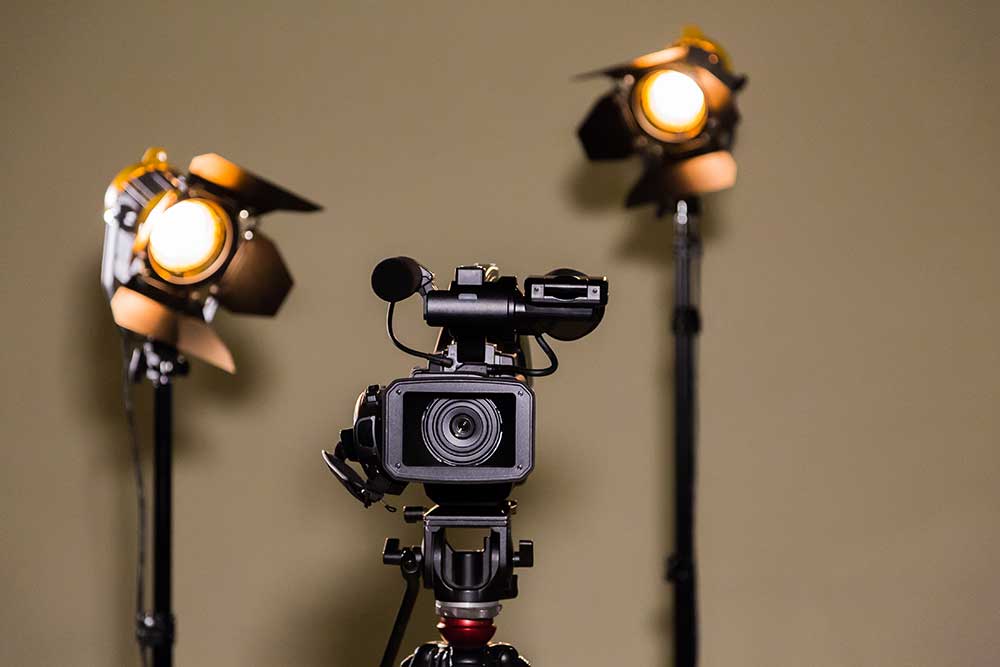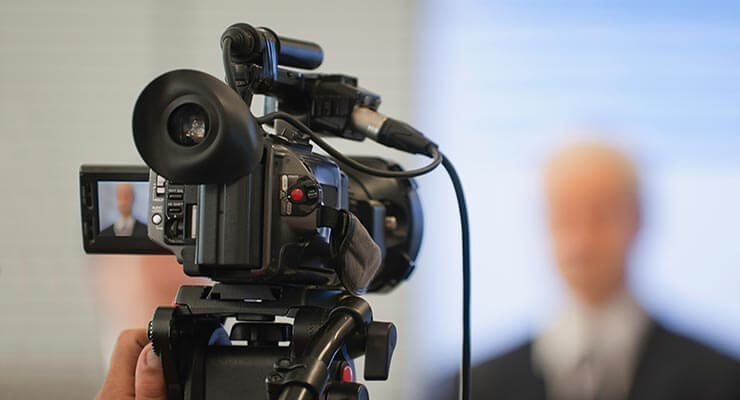Efficient Legal Videography for Legal Experts.
Efficient Legal Videography for Legal Experts.
Blog Article
The Role of Lawful Videography in Depositions and Trials
Legal videography has become a necessary device in both depositions and tests, supplying a complex method to recording witness testimonies. By recording not just the spoken word but likewise the nuances of non-verbal interaction, this tool improves the reputation of statements and preserves essential proof for future proceedings (legal videography). As attorneys progressively acknowledge its worth, it motivates a deeper exam of how these visual documents can influence juror understandings and test outcomes. What implications might these developments hold for the future of lawful practice?

Value of Legal Videography
Legal videography plays a crucial role in the documentation and discussion of depositions and tests. This specialized area integrates technical skills with legal knowledge to create a trustworthy document of process that can dramatically affect instance outcomes. The aesthetic element of lawful videography enhances the understanding of witness testament, enabling jurors and judges to observe not just the spoken words but additionally the demeanor, emotions, and body movement of the witnesses.
Additionally, legal videography supplies an objective account of events, decreasing the potential for false impression that can occur with created records alone. This visual paperwork works as a vital device during test presentations, assisting in a more clear and more influential story for both complainants and accuseds. Moreover, the capacity to replay video clip sections during court process enables lawful teams to stress bottom lines, reinforcing their arguments properly.
The significance of legal videography prolongs past the courtroom; it also plays an important role in protecting proof for future recommendation, whether for allures or further lawful action. Thus, its assimilation right into the legal process is vital for guaranteeing a reasonable and accurate depiction of the facts, inevitably adding to the quest of justice.

Process of Legal Videography
While catching the nuances of depositions and tests, the process of lawful videography entails several important steps that ensure high-quality, accurate recordings. A professional legal videographer prepares by reviewing the instance products and comprehending the details demands of the deposition or test. This prep work includes acquainting themselves with the participants and the context, which assists in recording important details.
On the day of the recording, the videographer establishes the needed devices, which generally includes high-definition video cameras, microphones, and proper illumination. Making sure optimum angles and sound high quality is vital, as it directly impacts the effectiveness of the recording. The videographer connects with attorneys and individuals to establish protocols, making sure that everybody recognizes the recording procedure.
During the deposition or trial, the videographer carefully tape-records the procedures, paying close attention to both verbal and non-verbal signs. This includes capturing the disposition and reactions of witnesses and attorneys. After the session wraps up, the videographer might modify the video for clearness and conformity with legal criteria, creating a final item that precisely shows the process for future referral and usage in legal contexts.
Advantages in Depositions
The unification of videography in depositions offers various benefits that enhance the total procedure of collecting proof. One key benefit is the capability to catch witness testaments with visual and auditory fidelity, supplying a much more exact representation of the witness's behavior, tone, and body movement. This multidimensional technique permits lawyers and juries to examine reliability better than standard written records alone.
Additionally, videographed depositions work as an effective device for maintaining statement. Should a witness come to be inaccessible for test, their recorded deposition can be played in court, making sure that their evidence stays easily accessible and appropriate. This facet substantially minimizes the threat of shedding crucial details that could influence instance end results.

Lastly, videography improves the general professionalism and trust her latest blog of the deposition process, instilling self-confidence in customers regarding the thoroughness of their legal representation (legal videography). By leveraging innovation, legal professionals can considerably improve the efficiency of depositions
Influence On Trials
In lots of trials, the assimilation of videography can significantly affect the presentation of proof and the court's perception. Legal videography captures witness testimonies and vital proof in a vibrant format, allowing jurors to engage with the product on multiple degrees. This visual part enhances the narration element of a test, providing context and psychological resonance that standard text-based evidence might lack.
Additionally, video recordings can work as effective tools for impeachment during cross-examination. When disparities occur between a witness's previous declarations and their court testimony, video clip evidence offers an resource unbiased referral that can guide jurors' opinions. This immediacy and quality can bolster the integrity of a celebration's story while simultaneously weakening opposing disagreements.

Future Trends in Legal Videography
As we look towards the future of legal videography, numerous arising patterns assure to improve its role within the court. One significant fad is the combination of fabricated knowledge (AI) in video analysis and editing. AI can improve the procedure of identifying key moments in taped depositions, permitting attorneys to swiftly access relevant content, thus enhancing efficiency in case preparation.
Furthermore, the increase of online reality (VR) and increased fact (AR) innovations is expected to look at this now change exactly how jurors experience proof. legal videography. By submersing jurors in a simulated setting, these technologies can provide an extra profound understanding of complex situations, leading to more enlightened deliberations
Moreover, the raising need for remote depositions, accelerated by the COVID-19 pandemic, will likely continue. Legal videographers will need to adapt to brand-new software program and platforms to guarantee high-grade recordings in digital settings.
Lastly, the expanding focus on data safety and security will certainly necessitate more stringent procedures for keeping and sharing video evidence. As the legal landscape evolves, legal videographers should remain abreast of these fads to preserve their significance and performance in the judicial process.
Verdict
In summary, lawful videography offers a crucial feature in the judicial procedure, improving the honesty of depositions and trials. By catching the nuances of witness statements, this medium not only preserves essential evidence yet additionally help in providing details effectively to jurors. The relevance of visual paperwork in reviewing integrity and promoting interrogation can not be overemphasized. As technology remains to progress, lawful videography is positioned to further change its function within the legal landscape.
Report this page